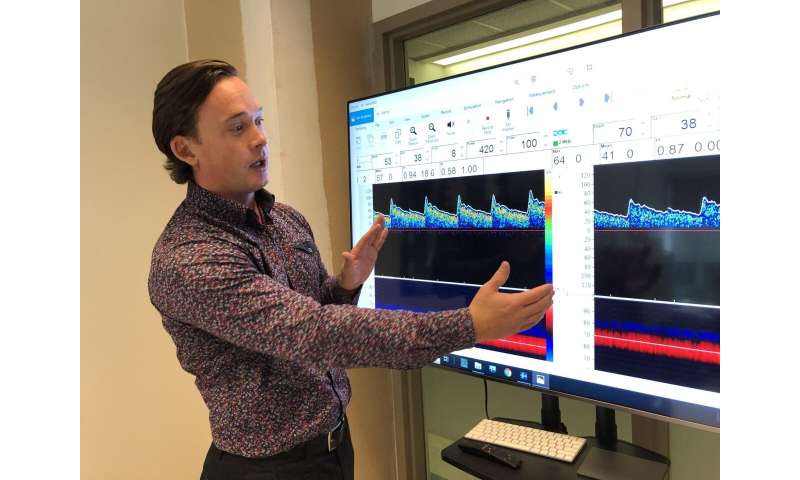
A new study led by a University of Calgary researcher at the Cumming School of Medicine (CSM) finds that fatigue and sleep may need more attention in order to prevent issues like stroke after spinal cord injury.
“People with spinal cord injury have alarming rates of stroke, and we wanted to understand why,” says study lead Dr. Aaron Phillips, Ph.D., assistant professor, in the Department of Physiology & Pharmacology, and member of the CSM’s Libin Cardiovascular Institute of Alberta and the Hotchkiss Brain Institute.
Working with colleagues in Canada, Serbia and Croatia, the team determined that fatigue and sleep issues were prevalent in people with spinal cord injury and that sleep-related breathing problems were associated with reduced brain health in this population.
The power of numbers
Using a data-set of more than 60,000 people, the researchers first revealed that individuals with spinal cord injury experience fatigue more than people without spinal cord injury. “The risk of fatigue is nine times greater in individuals with spinal cord injury compared to those without,” says Phillips. “Prior to these results, I don’t really think we realized what a huge problem sleep and sleepiness are for people with spinal cord injury.”

The researchers also found the incidence of clinically defined sleep apnea was roughly four times greater for individuals with spinal cord injury compared to those without, and then went on to show that fatigue and trouble sleeping are related to the level and severity of the spinal cord injury.
The researchers next conducted sleep and in-depth physiological studies to test whether there were any scientifically measurable differences to sleep after spinal cord injury. The full-night polysomnography recorded brain waves, oxygen level in participants’ blood, as well as their heart rate and breathing.
“People with spinal cord injury were suffering from very disturbed breathing during sleep that was actually preventing them from carrying oxygen to vital organs like their brain,” says Dr. Jordan Squair, Ph.D., post-doctoral scholar in the Phillips lab and first author on the study. “It’s not just about a good night’s sleep. Our study found sleep related disorders are negatively associated with brain health for individuals with spinal cord injury.”
https://youtube.com/watch?v=kRI8SEaQAE8%3Fcolor%3Dwhite
The danger of sleep disorders
The results of neuroimaging tests provided the crucial findings for researchers. They found that sleep-related breathing problems in people with spinal cord injury were associated with reduced health of brain blood vessels. This is important as people with spinal cord injury are three to four times more likely to experience stroke than uninjured individuals.
“Our results make a case for health-care professionals to incorporate assessments of fatigue and sleep-related breathing examinations into routine care for people with spinal cord injury,” says Phillips. “In addition, the use of a continuous positive airway pressure (CPAP) device may provide wide-ranging benefits for this group of people, including the reduction of stroke risk.”
Source: Read Full Article
